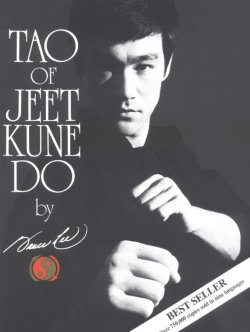An Unauthorized Bibliography
There’s nothing new within this book; there are no secrets. “It’s nothing special,” Bruce used to say. And so it wasn’t.
With over 750,000 copies sold in nine languages, The Tao of Jeet Kune Do is the bestselling martial arts book in modern history. Although Bruce Lee’s name and photo appear on the cover, dedicated fans know that he did not actually write Tao of Jeet Kune Do—at least not in its current form. (The book is a compilation of Bruce’s personal notes, organized and published posthumously by Dan Inosanto, Linda Lee and Gilbert Johnson.)
While credit for fighting methods expressed in Tao of JKD is rightfully given to boxer Edwin Haislet, fencers Hugo and James Castello, and others, we are left to infer that Jeet Kune Do’s philosophical underpinnings are Bruce’s unique contribution.
Quite the contrary, Jeet Kune Do is an orthodox expression of Taoist, Buddhist, and Western metaphysical principles. From the poem on the book’s opening page, to the passionate expressions of its final chapter, ideas in Tao of JKD can be traced directly to earlier written works. Here is a sampling of these sources.

